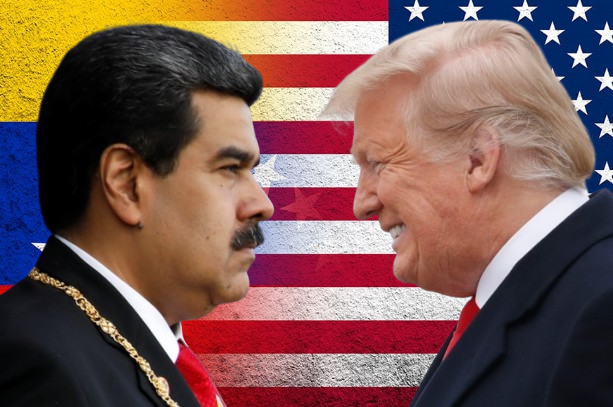
- Venezuela, despite holding the world’s largest oil reserves, faces economic collapse due to U.S. sanctions, corruption, and declining production under President Nicolás Maduro.
- U.S.-Venezuela relations remain tense, with Washington oscillating between sanctions, limited engagement for oil, and renewed military pressure under Trump’s second term.
- Venezuela has strengthened ties with China, Russia, and the Global South, seeking BRICS membership to counter U.S. threats and diversify its strategic partnerships.
- Rising tensions over the Essequibo region with Guyana risk destabilising the region and complicating India’s economic and strategic interests.
Venezuela is a country situated in Latin America, rich in oil reserves, and headed by the authoritarian president Nicolás Maduro. The country has witnessed everything from hyperinflation to economic sanctions by the United States, popular uprisings, and political crises.
Venezuela, a Latin American nation endowed with vast oil reserves, remains under the authoritarian leadership of President Nicolás Maduro. Over the past decade, the country has experienced hyperinflation, sweeping U.S. sanctions, economic collapse, and persistent political turmoil.
Situated close to the United States, a dominant force in Latin American geopolitics, Venezuela has long been at odds with Washington due to sharp ideological differences. The U.S. has accused the Maduro regime of harbouring drug cartels, endangering American citizens, and driving the surge of migrants across its southern border.
U.S.-Venezuela Relations: From Confrontation to Conditional Engagement
Under President Donald Trump, Washington openly challenged Maduro’s rule, recognising opposition leader Juan Guaidó as Venezuela’s legitimate president. Alongside this, the U.S. imposed sweeping sanctions that devastated the Venezuelan economy, severely cutting oil production despite the country holding the world’s largest proven reserves, about 303 billion barrels. Corruption and inefficiency within Venezuela’s state-owned oil sector further deepened the crisis.
After Trump left office in 2020, Guaidó’s influence quickly faded while Maduro consolidated power. Facing shrinking domestic energy supplies, the Biden administration adopted a more pragmatic approach, easing some sanctions in early 2023 and allowing American companies to resume oil operations in Venezuela. This marked a significant shift and paved the way for the Barbados Agreement (2024), under which the U.S. proposed lifting sanctions in exchange for free and fair elections. However, the opposition’s pro-U.S. candidate, María Corina Machado, was barred from contesting, and her replacement, Edmundo González, failed to secure victory amid claims of systemic bias.
Trump’s Return and Escalating Tensions
With Donald Trump returning to power, Washington has adopted a far more aggressive posture, announcing plans for a “drug war” against Maduro’s regime. U.S. military ships have moved closer to Venezuelan waters, prompting Caracas to mobilise its armed forces along the northern border.
Shifting Alliances and Regional Implications
In response to mounting U.S. pressure, Venezuela has turned toward China and Russia for strategic and economic support. Both nations see lucrative opportunities in Venezuelan oil and a chance to counter U.S. influence in the region. Simultaneously, Caracas has intensified efforts to align with the Global South, including a bid to join BRICS.
India’s role here is particularly significant. Having resumed oil imports from Venezuela despite Western objections, India has defended its energy ties with Caracas, echoing its stance on Russian oil supplies. External Affairs Minister S. Jaishankar has reiterated India’s right to pursue independent energy policies based on national interests.
The Guyana Factor
Regional tensions have further escalated over Venezuela’s long-standing claim on the Essequibo region in Guyana, which holds nearly 60% of Guyana’s oil reserves. In late 2024, Venezuela mobilised troops near the disputed border, raising fears of conflict. Given India’s growing strategic partnership with Guyana, highlighted by Prime Minister Modi’s 2024 visit and several bilateral agreements, any escalation could complicate New Delhi’s diplomatic and energy interests in the region.
References:
- https://www.indiatoday.in/world/story/the-us-venezuela-crisis-a-dangerous-escalation-in-americas-backyard-2784092-2025-09-09
- https://www.atlanticcouncil.org/blogs/new-atlanticist/what-to-know-about-trumps-war-on-drug-trafficking-from-venezuela/
Aayush Pal is a freelance writer on contemporary geopolitical developments. The views expressed in his work are entirely his own.
